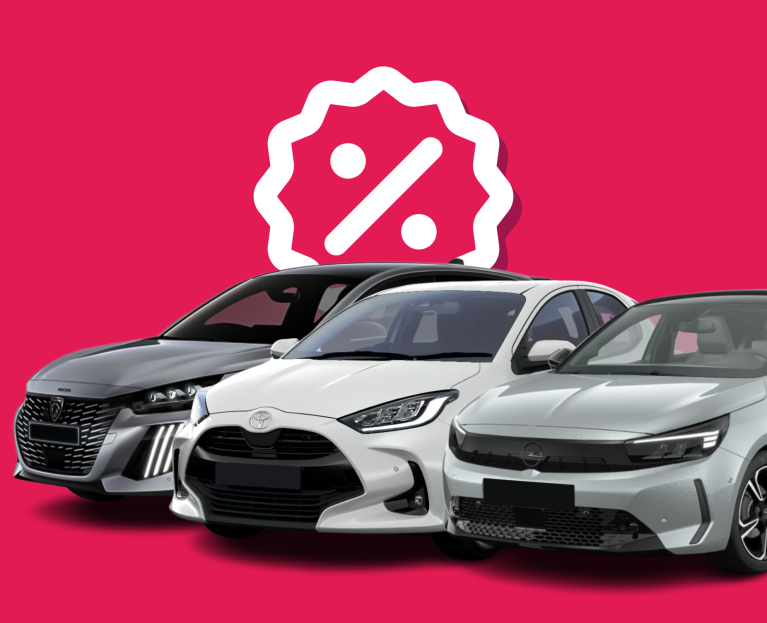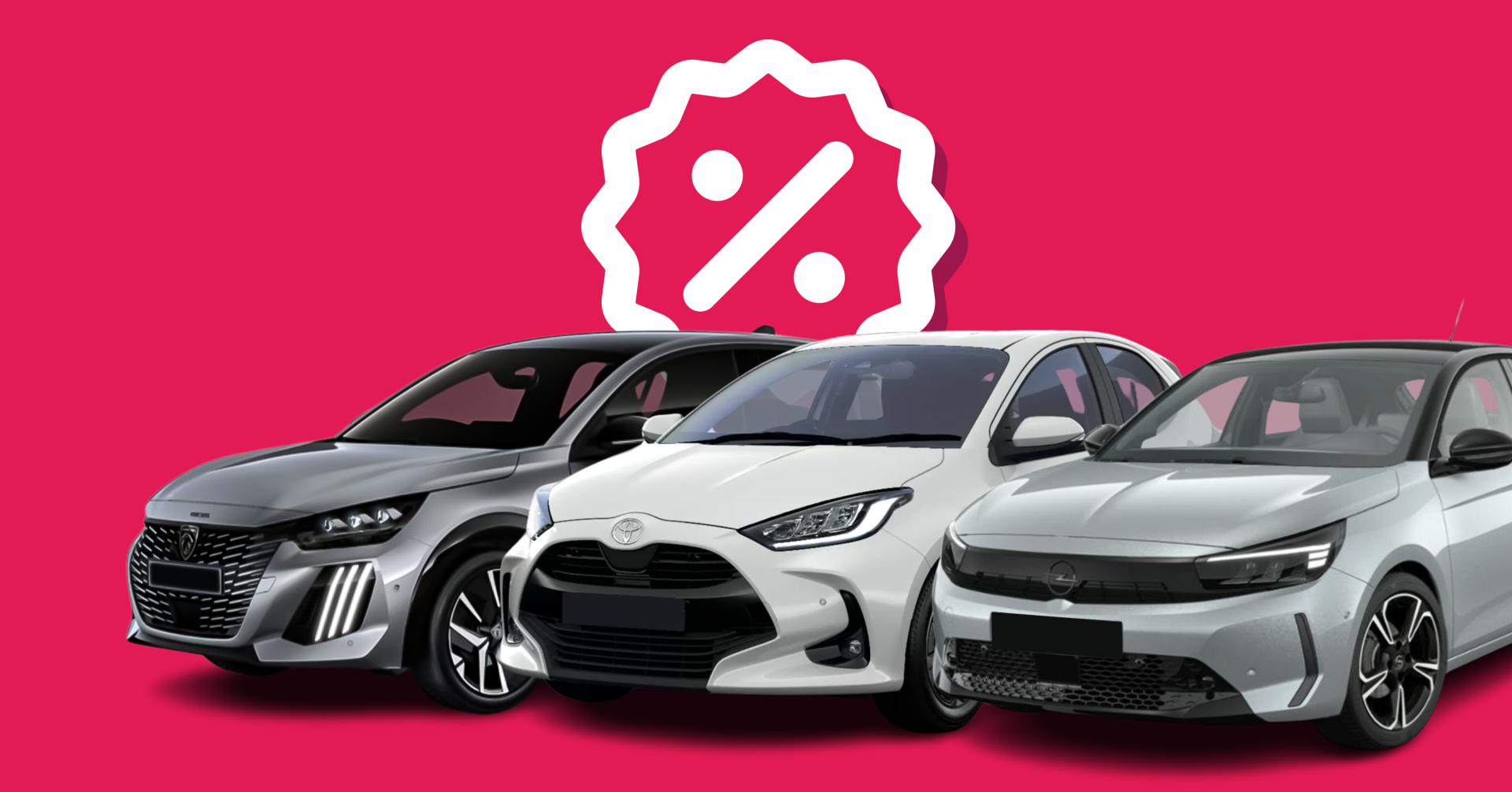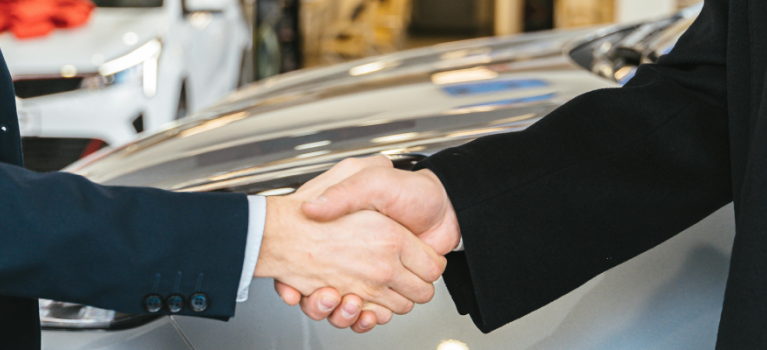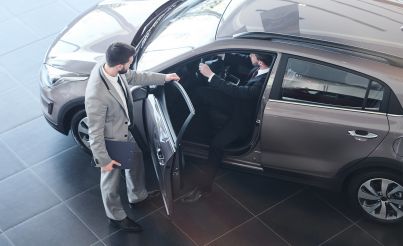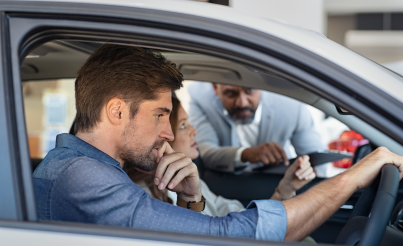- Advantages and disadvantages - for whom is it worth buying a car?
- How does buying a car in Switzerland work?
- Step 1: Choosing the right model
- Step 2: Find the right offer
- Comparing used car prices - what to look out for!
- Should you rather buy the car from a private person or a dealer?
- Step 3: On-site inspection and test drive
- Step 4: The purchase contract and the redemption of the car in Switzerland
- Carvolution car subscription: The alternative to buying a car
If you're thinking about buying a new car, you probably have a few questions in mind. How does buying a car in Switzerland work and what do I need to be aware of? What are the costs and is it even worth it for me?
In this blog article, we answer these questions and help you decide whether buying a car is right for you or whether you might be more interested in another form of mobility.
Advantages and disadvantages - for whom is it worth buying a car?
Before we explain in detail how buying a car in Switzerland works, it is worth asking for whom it is worth buying a car. To find out, we have summarised the main advantages and disadvantages of buying a car:
Advantages:
Free use and design: As the owner, you have the ability to completely design and modify your car.
No restrictions on use: There are no kilometre limits or restrictions on travelling abroad or taking pets, as is sometimes the case with leasing.
Affordable over the long term: If you keep your car for more than 8 years, buying is often more cost-effective than leasing or a car subscription, even if the resale value is lower due to high mileage and wear and tear.
Disadvantages:
High acquisition costs: If you opt for a cash purchase, you will have to invest a large sum of money right from the start. This capital is tied up and cannot be used or invested elsewhere.
Running costs: In addition to buying the car, there are running costs such as insurance, service and maintenance, tyres and possibly repairs. As these are spread over the year, they are often underestimated. Here, a car subscription with an all-inclusive package can be an interesting alternative.
Depreciation & resale risk: In most cases, your car will depreciate with age and mileage. For example, according to Allianz, a three-year-old car is worth only about 50 per cent of its list price. You need to factor in this resale risk when buying.
Little flexibility: If your needs and circumstances change, a change of vehicle is often unavoidable. Organising the sale and purchase of a new car at a good price can be a hassle, and possibly involve high losses.
How does buying a car in Switzerland work?
If you are generally interested in buying a car, you should take a look at the steps you need to take before the car arrives at your doorstep. From choosing a vehicle to negotiating the purchase and registering the vehicle, the decision is certainly not an easy one.
Step 1: Choosing the right model
The first question to ask is which car model best suits your needs and circumstances. First, we recommend that you decide on the most suitable vehicle category (e.g. station wagon, SUV or compact car) depending on your circumstances and needs.
In addition, you should choose between manual or automatic transmission and diesel, petrol, hybrid or electric cars. The type of drive system (four-wheel drive, front-wheel drive or rear-wheel drive) is also important for many buyers.
Finally, the price, age and equipment of the car are of course fundamental criteria. While you, for example, can't expect the latest assistance systems in a used car, a new car is often better equipped.
Step 2: Find the right offer
Once you have narrowed down your choice of model, the next step is to look for a good deal. Therefore, you should compare prices and take your time, especially if you are looking for a used car.
Comparing used car prices - what to look out for!
To find a realistic price for your model, look at the engine, year, horsepower, specification and mileage. Pictures will also give you a good first impression of the car's condition. If you are happy with everything so far, the next step is to view the car in person, including making a test drive.
Should you rather buy the car from a private person or a dealer?
You should also consider whether you want to buy the car from a dealer or a private seller. While you can sometimes get better deals on used cars from private sellers, dealers have a professional contact person who you can often turn to after the purchase.
Step 3: On-site inspection and test drive
Once you've arrived at the seller's premises, it's time for an inspection. It is important to note that both private individuals and dealers are obliged to inform you of any accident damage. However, as minor damage such as small scratches, scrapes or dents do not always have to be reported, you should always inspect the car on site and check that it is in proper condition.
As well as any blemishes, this includes documents such as the vehicle registration document, a complete service booklet, the most recent MOT report and any repair or accident records.
You can then test drive the vehicle in detail. As well as the driving experience, you should also pay attention to the condition of the car. Does the engine start properly, do the air conditioning, exterior mirrors, seat heating, etc. work, do you hear any noise while driving, do the brakes work properly and do all the indicators light up correctly? If everything is in order, you can go ahead and sign the contract.
Step 4: The purchase contract and the redemption of the car in Switzerland
If the model is right, you've negotiated a good price and checked the car's condition, it's time to sign the contract. There are a number of details to pay attention to, especially with new cars or expensive used models. We would like to refer you to the article by the Touring Club Switzerland (German), which summarises important information on the purchase contract.
Once the purchase contract has been signed, you will need the following items before you can hit the road:
Vehicle registration document: You will receive the original registration document from the previous owner.
Insurance: At a minimum, you will need valid third party insurance as required by law. However, we also recommend that you get partial or fully comprehensive insurance.
ID and proof of residence: If you are redeeming a car for the first time, you will also need your identity card and proof of residence, which you must present to the Road Traffic Department.
You will then receive new licence plates. If you already have your own number plates, you can drive the car with a temporary licence. If you buy through a dealer, you have the advantage that the administrative procedures are taken care of for you, usually for a fee.
If you buy it privately, you can, with the seller's permission, drive to the Road Traffic Department with the seller's plates and have the car transferred to your name. Afterwards, of course, you return the plates to the seller.
Carvolution car subscription: The alternative to buying a car
You don't want to take the risks of the car market, nor pay high initial costs and high depreciation? Then take a closer look at Carvolution's car subscription.
With Carvolution you get a new car, including all running costs, for a total monthly price. In addition to the car, the all-inclusive package also includes comprehensive insurance, cantonal redemption, service and maintenance, taxes and tyres. All you have to do is fill up your tank and drive off!
Compared to a purchase, a subscription also gives you much more flexibility. Simply choose a term anywhere between 3 and 48 months. After that, you can return the vehicle, change the model or end the subscription as you wish.
Finally, a car subscription is affordable and predictable, especially when compared to leasing. With a fixed monthly price, you know exactly what your costs will be, and our best price guarantee ensures you never pay more than you would if you were leasing. Find out more here.
Is a car subscription perhaps more suitable for you than buying a car, or would you like to test drive a model for a few months before you buy it? Then take a look at our wide range of models or get in touch with our team for a non-binding consultation.
Get the Supersavers
Discover new special offer models at unbeatable prices, such as the Toyota Yaris from CHF 239.– for 24 months. More top deals on Fiat, BMW, Opel & Peugeot models.
